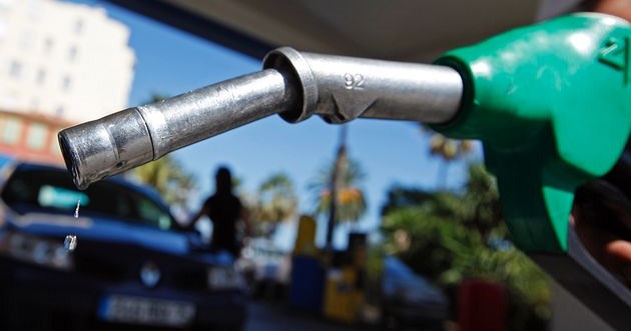Graffiti
Policy direction for price stability in the petroleum sector

The recent increase in the pump price of fuel has led to nationwide anger and outrage. This is happening at a time Nigerians are just coming out of prolonged economic lockdown due to COVID-19 pandemic. The hike in electricity tariff and fuel price has pushed the citizens to the edge. No doubt, the increment is ill-timed considering the spiral effect on other sectors of the economy. Nigerians are angry due to high cost of living, galloping inflation, increasing level of unemployment and lack of purchasing power caused by the depreciation of the Naira. In the same vein, the country’s poverty profile has risen as more people now live below the poverty line.
There is a nexus between the pump price of fuel and other sectors of the economy, especially the transport sector. Once there is an increase in fuel price, transport fares go up and this usually triggers inflation in the economy. Since the beginning of the year 2020, there have been series of price adjustment for fuel. This is due mainly to the fact that Nigeria imports 100% of petrol at the prevailing international price. The volatility of price in the international market has tremendous impact on the landing cost of fuel in Nigeria. Sequel to the abolition of corruption-ridden fuel subsidy regime, the Petroleum Products Pricing Regulatory Agency (PPPRA) has no other option than to increase fuel price on monthly basis or interval.
The question that arises is whether this is the best solution to the problem or not. The answer is “No”. It is a sad paradox that while Nigeria is the highest producer of crude oil in Africa, the country is unable to refine it. The three refineries located in Warri, Port Harcourt and Kaduna have become moribund despite uncountable Turn Around Maintenance costing huge sums of foreign exchange. The refineries are old and have become unserviceable due to outdated technology and obsolete equipment. For the past 21 years of return to democracy and even prior to that time, Nigeria has been importing fuel at a huge cost to the economy and the people. The economy is bleeding profusely because of the heavy amount being spent on fuel importation by the Nigerian National Petroleum Corporation (NNPC). The situation is further worsened by the devaluation of the Naira by the Central Bank of Nigeria (CBN). There is no safety net or palliative from the Government which is also struggling to keep the economy afloat. Money is the lifeblood of any economy. However, Nigeria’s economy is short of money due to haemorrhage. This is why Government continues to borrow to finance the budget deficit.
Read also: NDDC: President Buhari should act on the IMC indictment for corruption
With the pressure on foreign reserves to import fuel coupled with lack of purchasing power by the people, the Federal Government has to take far-reaching policy measures to shore up the economy and ensure stability of fuel price.
GOING FORWARD:
Government has to re-consider its stand on the control of the three refineries which are in a state of coma. Government should enter into strategic partnership with renowned international oil companies to overhaul the refineries or privatize them. It has often been stated that Government does not have any business running any commercial enterprise. The function of Government is to provide the regulatory framework for the private sector to operate. Under the Public Private Partnership (PPP) arrangement, the Federal Government may wish to hold minority shares while majority shares will be allocated to reputable international oil companies. The bottom line is local production of fuel, conservation of foreign exchange, stability of fuel price and overall development of the economy. All the cost elements associated with the pricing of imported products will be eliminated making petroleum products cheaper. With a population of 200 million people, Nigeria certainly needs more refineries to meet up with the high demand for petroleum products. The international oil companies such as Exxon Mobil, Total, Agip, Shell and Chevron can establish more refineries to fill the huge gap in the supply segment of the oil industry. This will also boost foreign direct investment in the Nigerian economy. Deregulation of petrol price without significant local refining capacity has no benefit or advantage to the people. The paradox of having a borehole and importing water is a tragedy. Continuous importation of fuel is hurting the economy and the people. It is not sustainable. Not only that, the pump price of fuel will continue to increase as a result of external shocks and low value of the Naira vis-a-vis the exchange rate of the Dollar. In the final analysis, Government must do the needful to put an end to fuel importation. The money saved should be used to stimulate the economy, create jobs and reduce pervasive poverty.
Author: Afolabi Faramade…
Articles published in our Graffiti section are strictly the opinion of the writers and do not represent the views of Ripples Nigeria or its editorial stand.
Join the conversation
Support Ripples Nigeria, hold up solutions journalism
Balanced, fearless journalism driven by data comes at huge financial costs.
As a media platform, we hold leadership accountable and will not trade the right to press freedom and free speech for a piece of cake.
If you like what we do, and are ready to uphold solutions journalism, kindly donate to the Ripples Nigeria cause.
Your support would help to ensure that citizens and institutions continue to have free access to credible and reliable information for societal development.






















